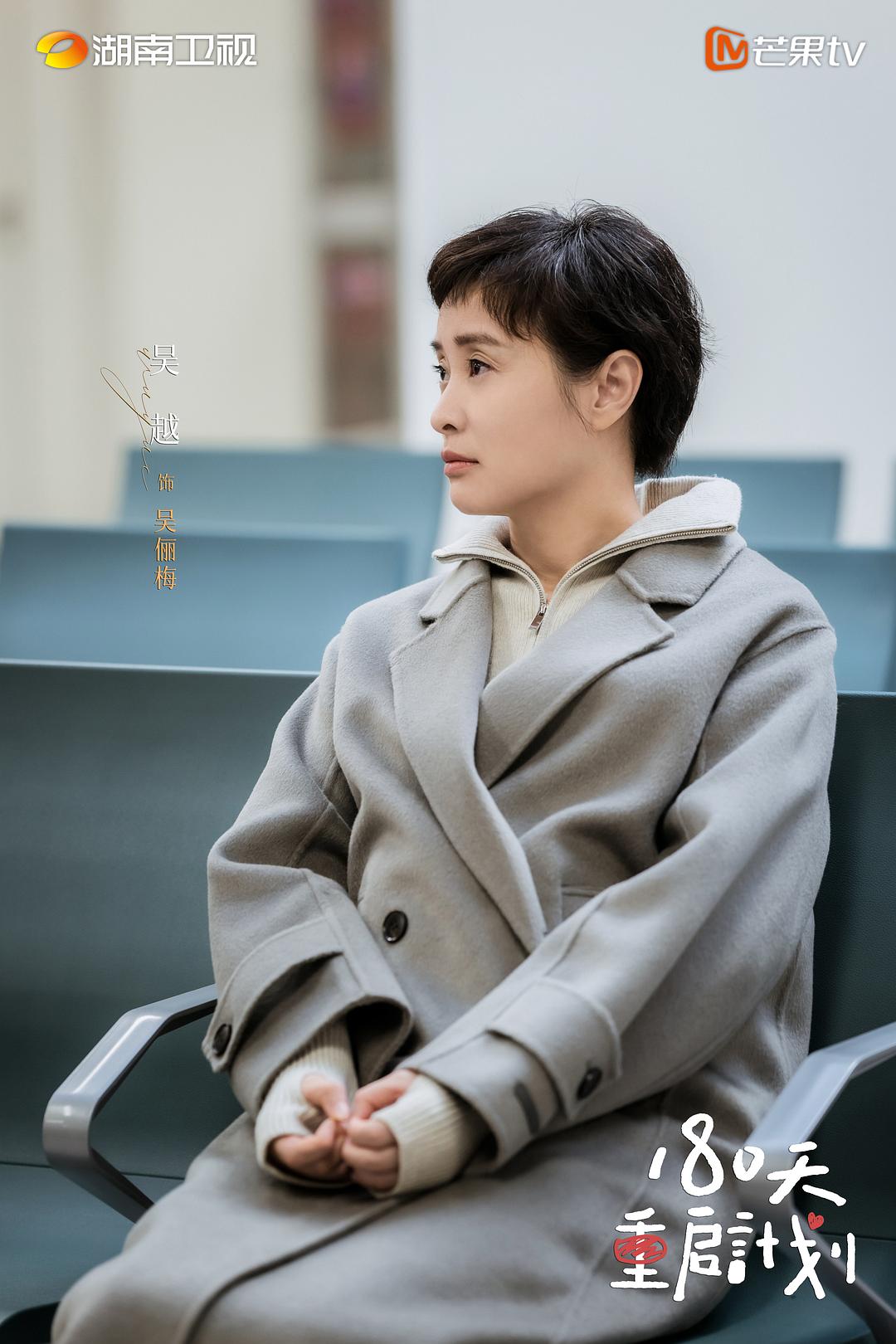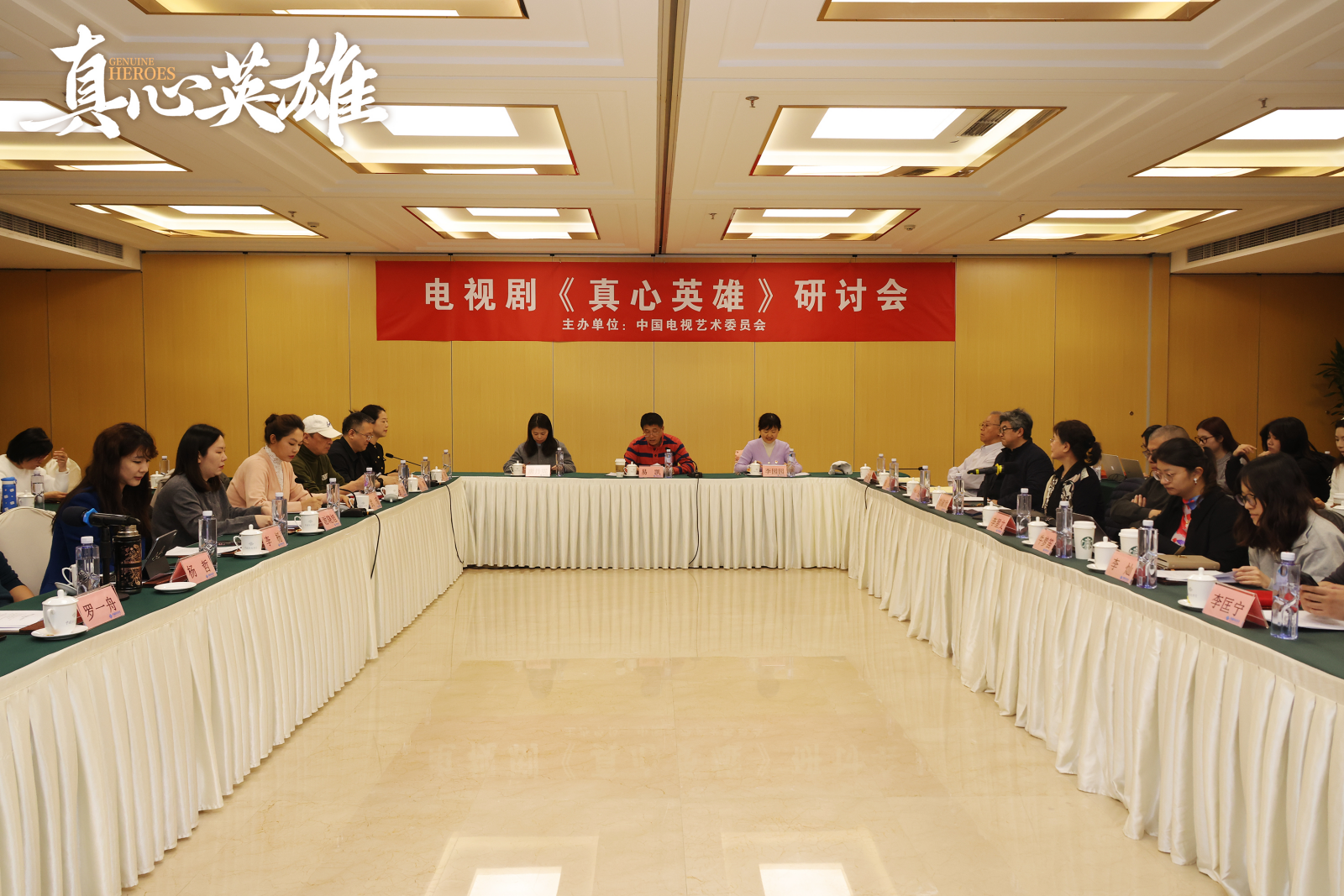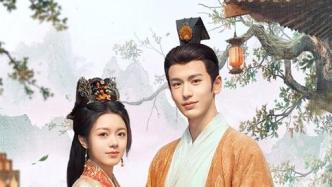
The current track of rebirth dramas is somewhat complicated. Some protagonists are reborn for revenge, some are reborn to change their previous bad luck, and some are reborn to show that my fate is in my own hands... "Du Hua Nian", adapted from Mo Shubai's novel "The Princess", has three reborn protagonists at once. The main tasks of the male and female protagonists after rebirth are to engage in power struggles and rediscover their love for each other.
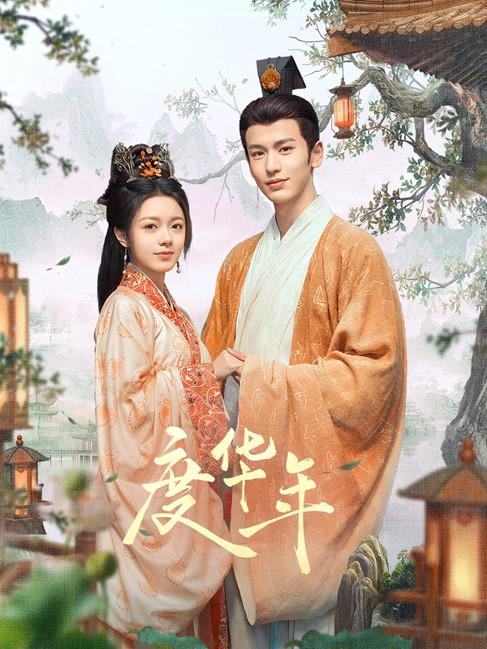
Poster of "The New Year"
Princess Li Rong (played by Zhao Jinmai) of the Great Xia Dynasty and Prime Minister Pei Wenxuan (played by Zhang Linghe) have gone from being a loving couple to being resentful couples in different political camps when they reach middle age.
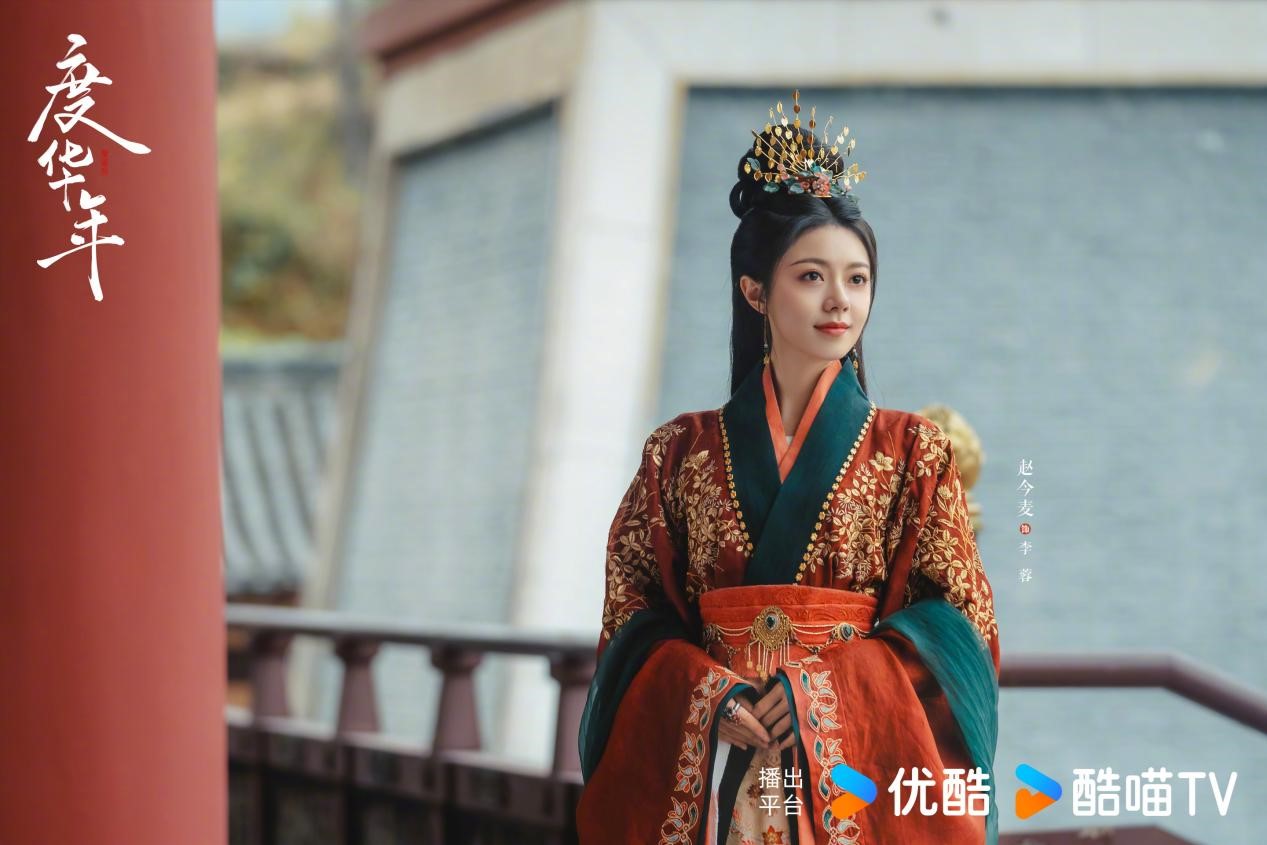
Li Rong (played by Zhao Jinmai)
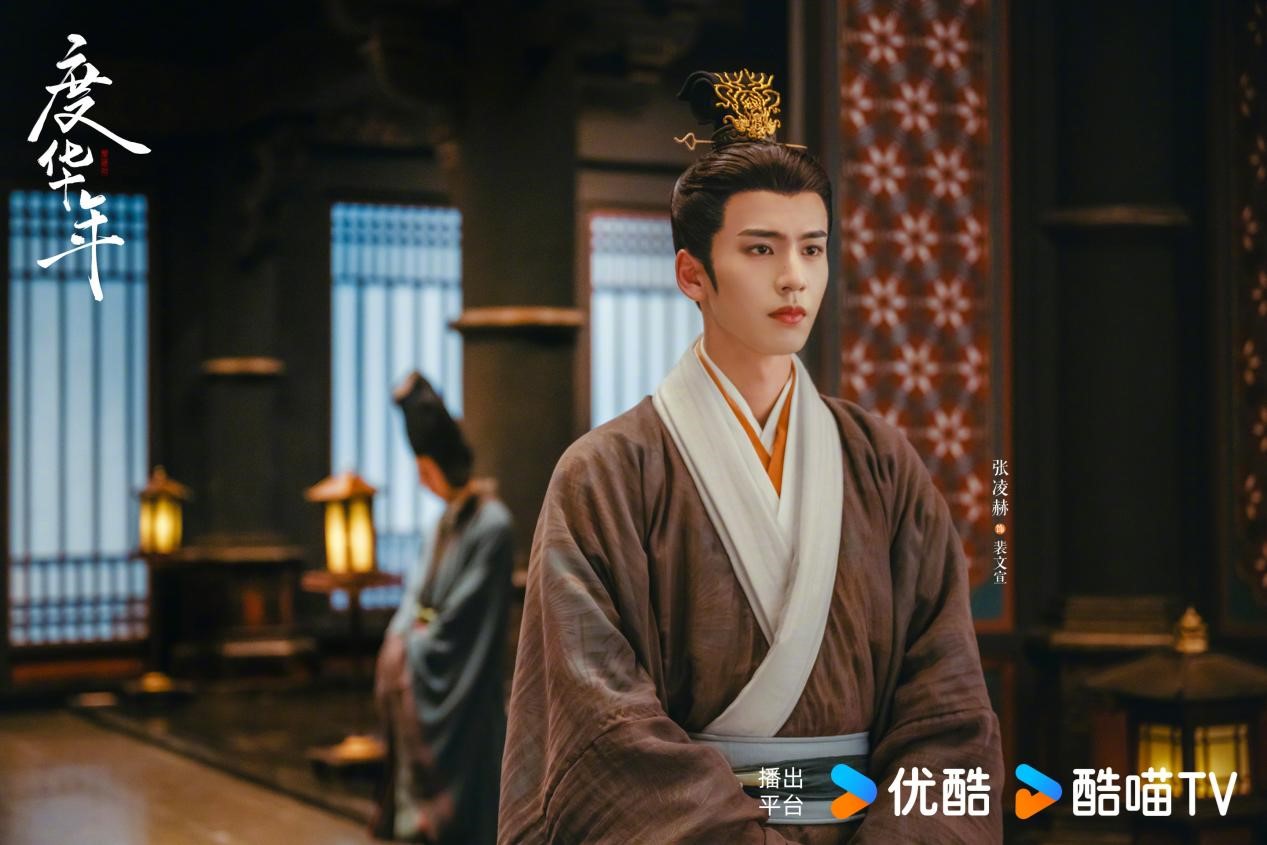
Pei Wenxuan (played by Zhang Linghe)
Li Rong was poisoned to death. Before she died, she thought it was Pei Wenxuan who drugged her, so she ordered people to get rid of Pei Wenxuan.
The two were reborn after death and returned to 20 years ago. At that time, Li Rong was an 18-year-old girl and Pei Wenxuan was a 20-year-old top scholar, but the ones living in their souls were themselves 20 years later.
The political intrigue plays occupy a lot of space in "Du Huanian". Although the story is set in an imaginary historical background, from the characteristics of political struggle and the characteristics of costumes and props, it is obvious that the imaginary era of "Du Huanian" corresponds to the Wei, Jin, Southern and Northern Dynasties.
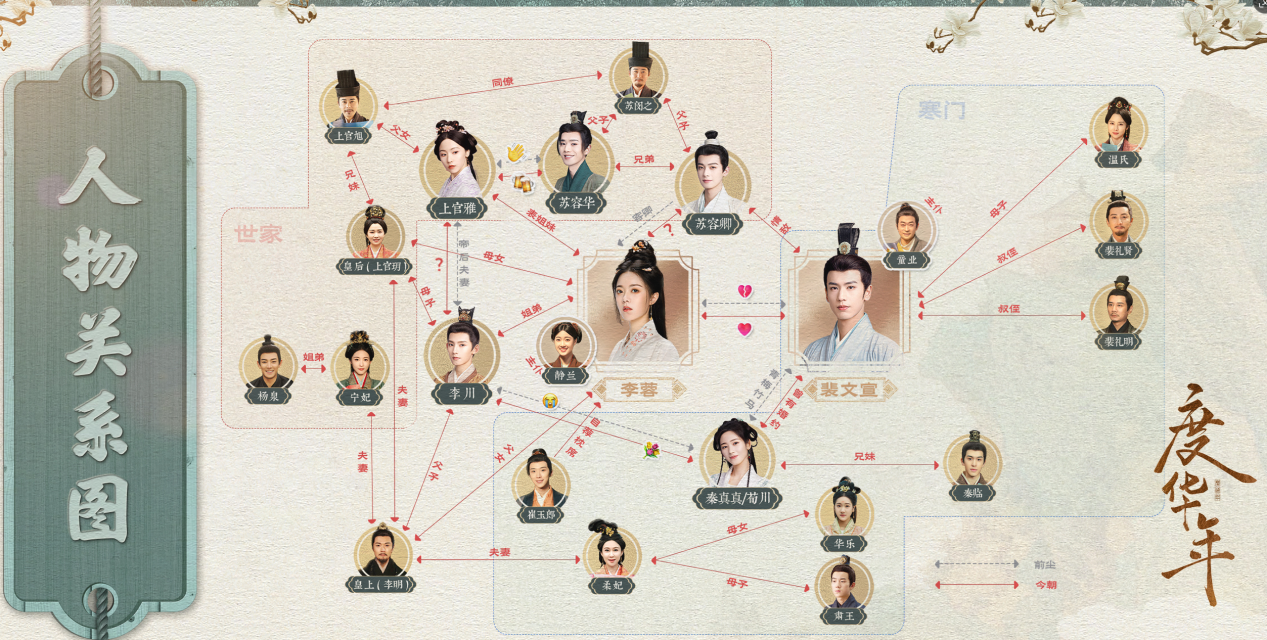
The relationship between the characters shows the game between imperial power, aristocratic families and poor families.
During the Wei, Jin, Southern and Northern Dynasties, the power struggle between the imperial power, the aristocracy and the poor was the most important feature of the imperial court. At that time, the imperial power was lost, and the aristocratic families occupied important government positions for a long time through hereditary official positions, marriages and networks of students and former officials, influencing national policies. The royal family tended to support the poor forces to fight against the aristocracy, forming an alliance between the imperial power and the poor, and the royal family used the poor to balance the power of the aristocracy.
In the context of "Du Hua Nian", 20 years ago, the emperor wanted to consolidate the power of the imperial power, and was highly wary and vigilant of the aristocratic forces represented by the queen, the eldest princess Li Rong, and the crown prince Li Chuan (the queen's family had three generations of queens). In order to weaken the power of the aristocratic families, the emperor betrothed the eldest princess to Pei Wenxuan, who came from a poor family.
20 years later, the former prince has become the emperor. He has repeated his father's mistakes and is deeply constrained by the power of the aristocracy. When he was seriously ill, he asked Pei Wenxuan to make his eldest son Li Ping, born to him and his beloved concubine Qin Zhenzhen (from a poor family), the crown prince, in the hope that the imperial power could be free from the control of the aristocracy; Li Rong insisted on making the crown prince Li Xin, who happened to be from an aristocratic family, the crown prince... Pei Wenxuan and Li Rong argued endlessly over the issue of the crown prince, but soon both of them died.
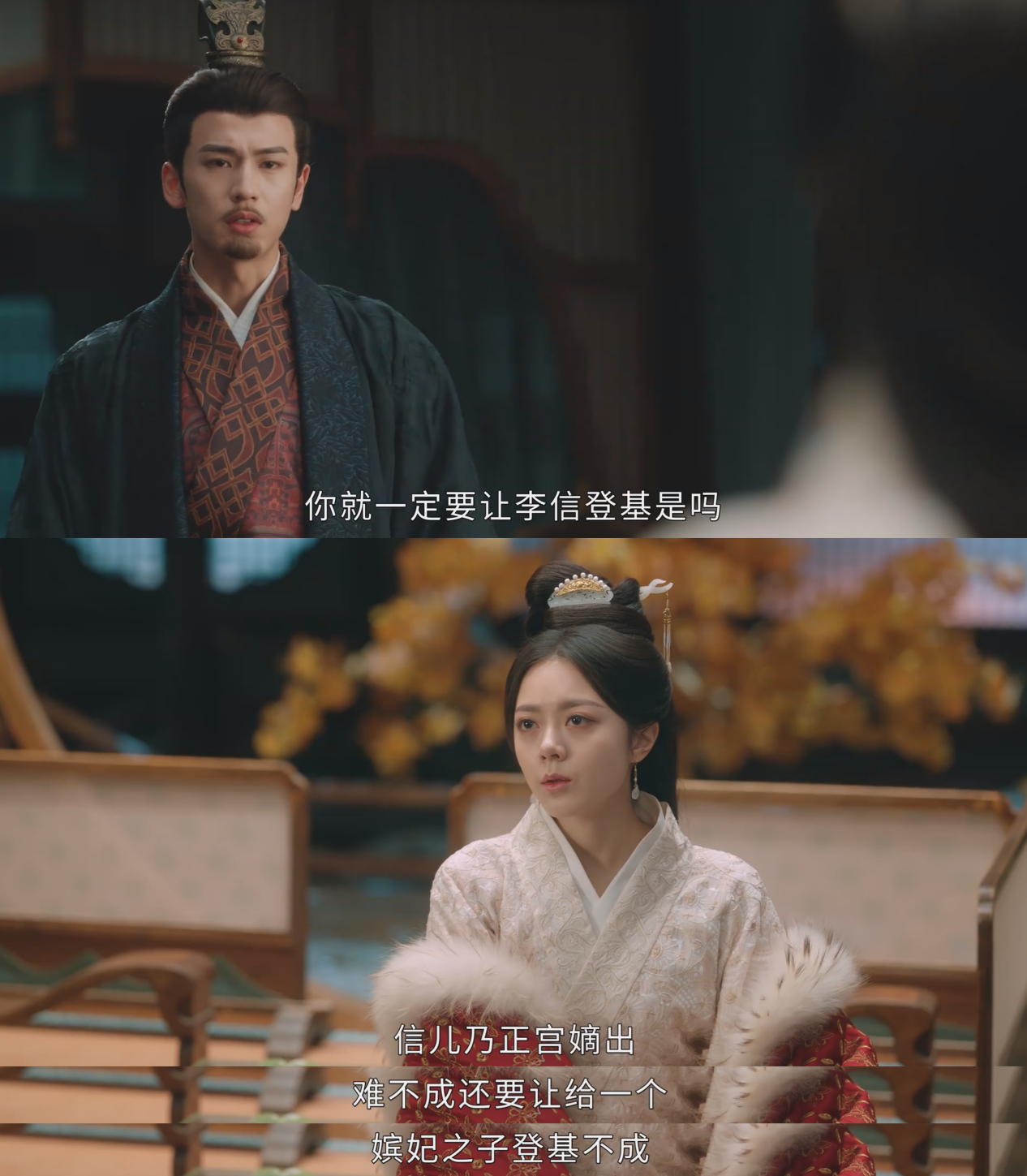
Li Rong and Pei Wenxuan argue about the succession
If the screenwriter has the ability to write a good political drama, the political drama in "Du Huanian" will definitely be very interesting. The political struggles in the Wei, Jin, Southern and Northern Dynasties in history were indeed quite cruel and full of dramatic tension.
Unfortunately, maybe the screenwriters don't have the ability to do this, or maybe the show never wanted to use the political intrigue as a selling point, so the political intrigue in "Du Hua Nian" is ridiculously childish. You can't take it seriously at all, because if you do, you won't be able to watch this show.
There are too many bugs, so let's just talk about one. The emperor had long been dissatisfied with the aristocratic Yang family. The Yang family had their own army and was powerful. Yang Wan, a member of the Yang family, was the Ning Fei of the dynasty, so much so that there was a folk song "There were two emperors in the Xia Dynasty, Yang in the north and Li in the south". While the emperor was secretly investigating Yang's infidelity, he appointed Pei Wenxuan to take the opportunity to kill Yang Quan, the second son of the Yang family, as a "dowry" for him to marry Li Rong. Later, Pei Wenxuan really took advantage of an opportunity to kill Yang Quan.
In the normal logic of political conspiracy, the emperor ordering the assassination of the family members of powerful officials would cause great political turmoil and potential military rebellion. A sane emperor would not risk taking such a radical and unwise action, which would only endanger the stability of his rule.
Similarly, a poor boy with a normal mind would not take such a bold action. This was not in line with the power structure of the society at that time and the actual status of poor boys. Even if a poor boy really did this, the emperor would pull him out as a scapegoat and kill him to stabilize the situation.
The political intrigue drama in "Du Huanian" is "brainless". Not only does it have such outrageous plots, but the subsequent developments are also speechless: After Yang Quan was killed, Concubine Ning Yang Wan was just furious. She ordered people to notify her family to evacuate, send a letter to her father at the border, and send spies to keep an eye on the emperor's every move... In the end, the entire Yang family was really wiped out, and there was no resistance from other aristocratic families.
The struggle between imperial power and the aristocracy is so crude and childish, it's just playing house.
So, don't blame Zhao Jinmai and Zhang Linghe for acting out 38/40-year-old states and mindsets like kids pretending to be adults; the screenwriters wrote the political intrigue drama so childishly that it's hard for the audience to imagine that Li Rong and Pei Wenxuan are really scheming. Their frowned brows seem like they're seriously calculating, but in fact they're silly and stupid, which unexpectedly matches the childish political intrigue of the drama - they're all uniformly childish.
However, from the perspective of ancient idol drama, "Du Huanian" is still watchable. Since it is about a middle-aged couple who fall in love again after rebirth, the romantic drama of "Du Huanian" has some new features or highlights.
First, the style of the bickering couple is very clear.
The series has a fast pace. At the end of episode 2, Li Rong and Pei Wenxuan discovered the truth about each other's rebirth. In episode 3, Li Rong learned the most important truth - the person who killed him was not Pei Wenxuan, but someone else. In episode 4, the two people who were reborn have re-established their engagement...
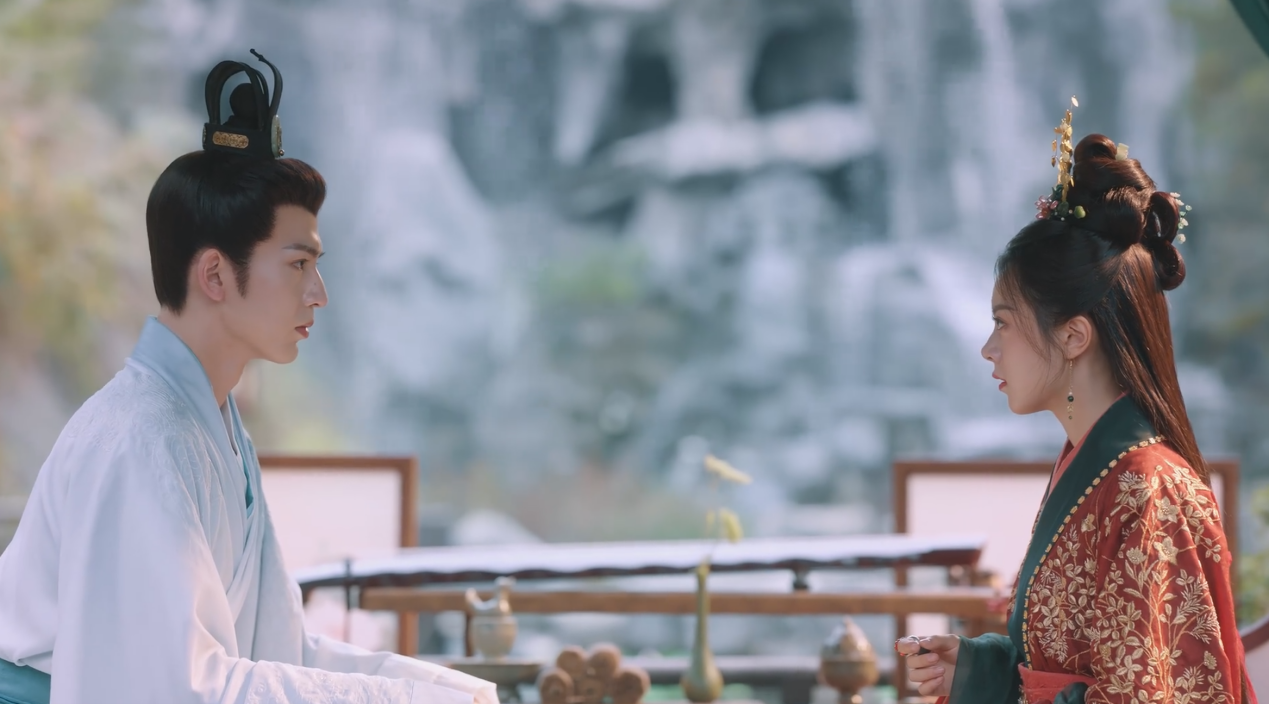
Li Rong and Pei Wenxuan discovered each other's rebirth in the game
Misunderstandings and hatred were eliminated. The two people were so close and familiar with each other in their previous life, and they were "closer relatives" in this life (both were reborn + had an engagement). Li Rong and Pei Wenxuan naturally became happy enemies. They would happily pinch each other when they met - mainly Li Rong "pinching" Pei Wenxuan, and he could call her "dog thing" very easily.

Li Rong always complains about Pei Wenxuan being a "bastard"
Although the lines between the two people are very childish, it does not prevent them from having a sense of couple. Maybe sometimes, people in love are "childish".
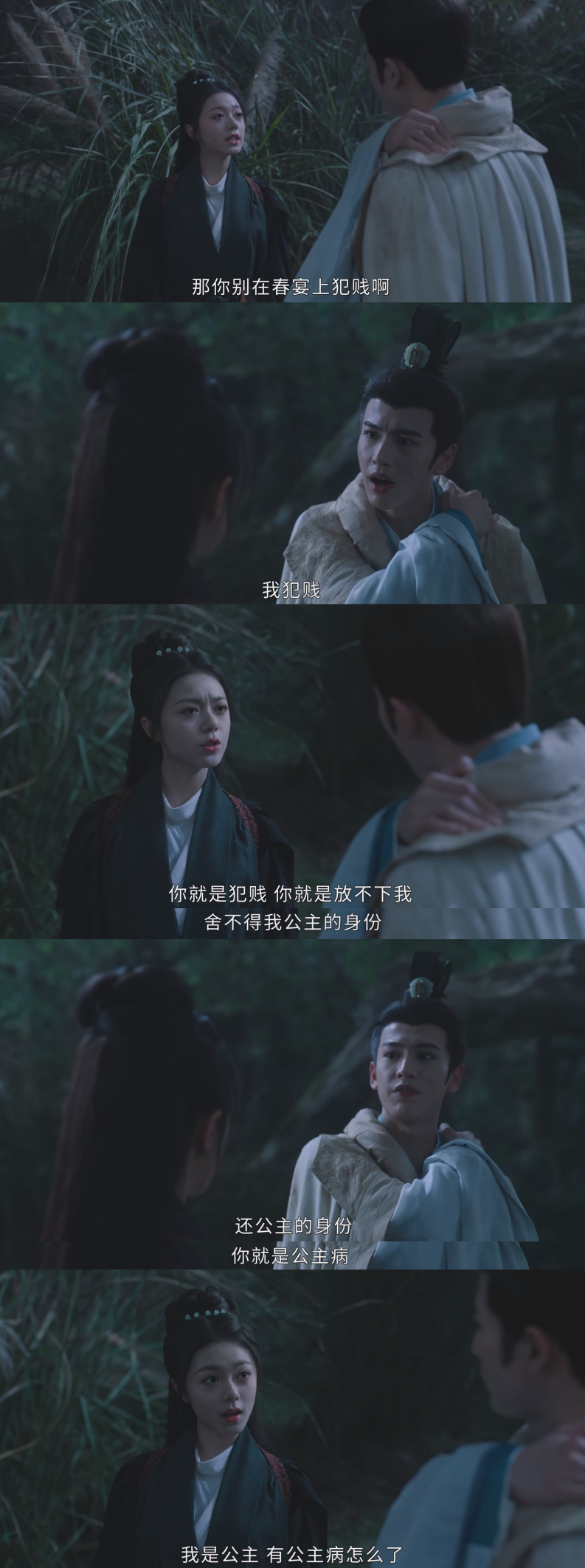
It doesn't seem like a quarrel between a 38-year-old and a 40-year-old in their mental state, but rather like a quarrel between "primary school kids", and the lines are very modern
Secondly, under the setting of "strong women and weak men", female audiences are very happy whether Pei Wenxuan is jealous or embarrassed.
Li Rong is in the upper hand not only in terms of identity, status, and power, but also in emotional relationships. Li Rong controls the direction of emotions. She teases, provokes, and annoys Pei Wenxuan, demonstrating women's initiative and control in emotional relationships, which can inspire the target audience.
At the same time, Pei Wenxuan's jealousy or frustration reflects his anxiety, jealousy and possessiveness in love, which shows that he loves deeply and satisfies the fantasy of female audiences about an ideal partner, that is, to find a partner who can accept their temper and give them enough respect and love. Compared with "Ning An Ru Meng", "Du Hua Nian" is more likely to win Zhang Linghe's fans.
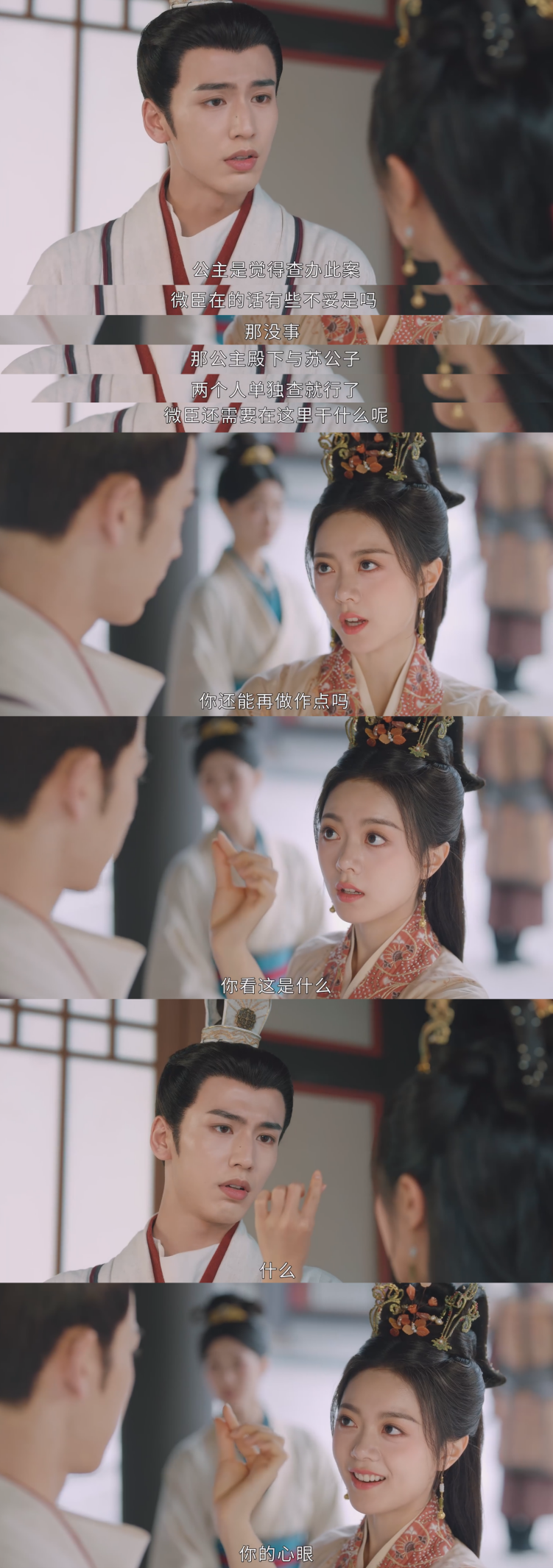
Pei Wenxuan is jealous
Thirdly, a relationship without internal friction makes the audience feel less worried.
In traditional idol dramas, the protagonists do not talk about misunderstandings, and the misunderstandings go on for several episodes, which really makes the audience emotionally tired. In "Du Hua Nian", the protagonists clearly had feelings for each other in their previous lives, but they did not talk about the misunderstandings, and they turned from lovers to resentful couples.
After rebirth, the two finally learned their lesson and both had their mouths. They adopted a direct communication and timely untied heart knot approach, reducing unnecessary procrastination, making the plot more compact and making the audience feel more comfortable, without having to worry about the protagonist who didn't open his mouth. For example, in episode 11, Pei Wenxuan confessed in the rain, expressing his feelings clearly and clearly, which satisfied the audience - sweetness must be the main theme, so just enjoy it with peace of mind.
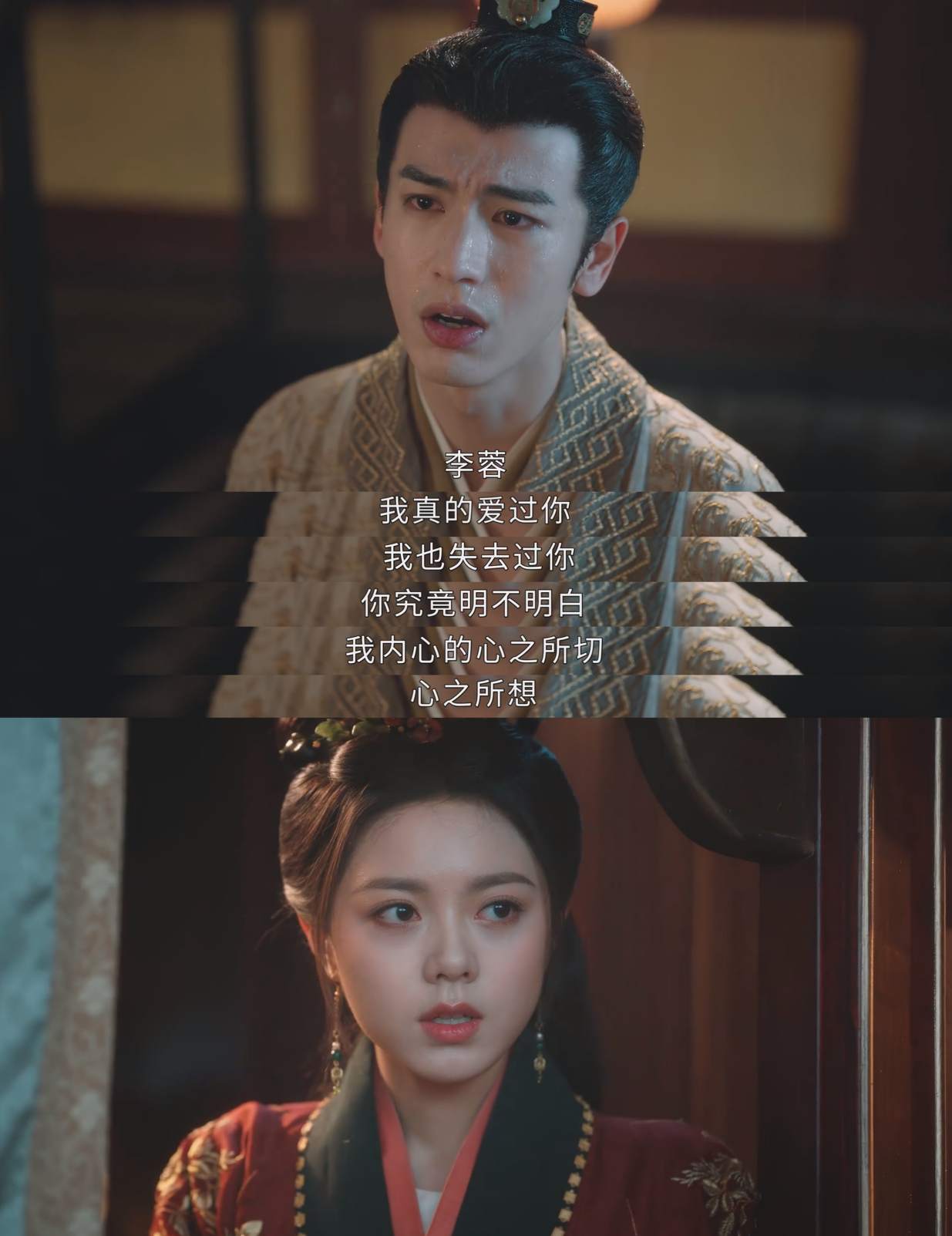
Pei Wenxuan confesses in the rain
In a sense, any rebirth drama will more or less involve an important speculative proposition: how will we choose when faced with the same path in our lives again? This is another important topic in "Du Hua Nian" besides power struggles and love, and it is also a plus point for this drama.
The screenwriter reflects this important life issue not mainly through the relationship between Li Rong and Pei Wenxuan, but through the relationship between Li Rong and her younger brother Li Chuan.
In their previous lives, Li Rong and Li Chuan had a very good relationship as siblings. They were willing to risk their lives to protect each other. They were also innocent and happy teenagers. Why are they both so miserable 20 years later? Why did their relationship go from close to distant, and even Li Chuan poisoned Li Rong? When did they lose each other?
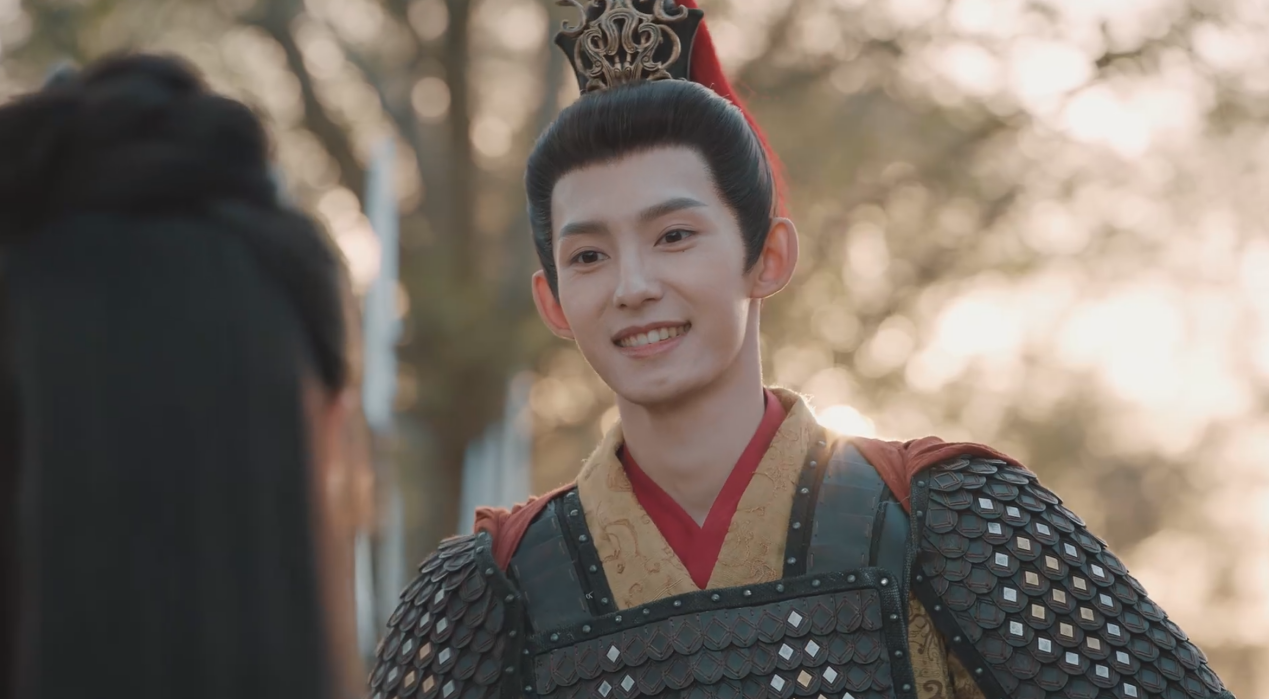
Li Rong's younger brother Li Chuan used to be a sister-con and had a cheerful personality.
After her rebirth, Li Rong was puzzled for a while. Pei Wenxuan woke her up with one word: "Time has changed not only His Royal Highness, but also you and me."
In the flashback of the previous life, the audience discovered that it was Li Rong who pushed her brother into the "abyss". In the previous life, Li Rong was involved in the political factional struggle. She required, expected and "forced" her brother to be a good prince and heir. Li Chuan married someone he didn't like for the sake of political prospects... As a sister, she also lost her original intention unknowingly, and only had politics in her eyes, completely ignoring her brother's personal happiness.
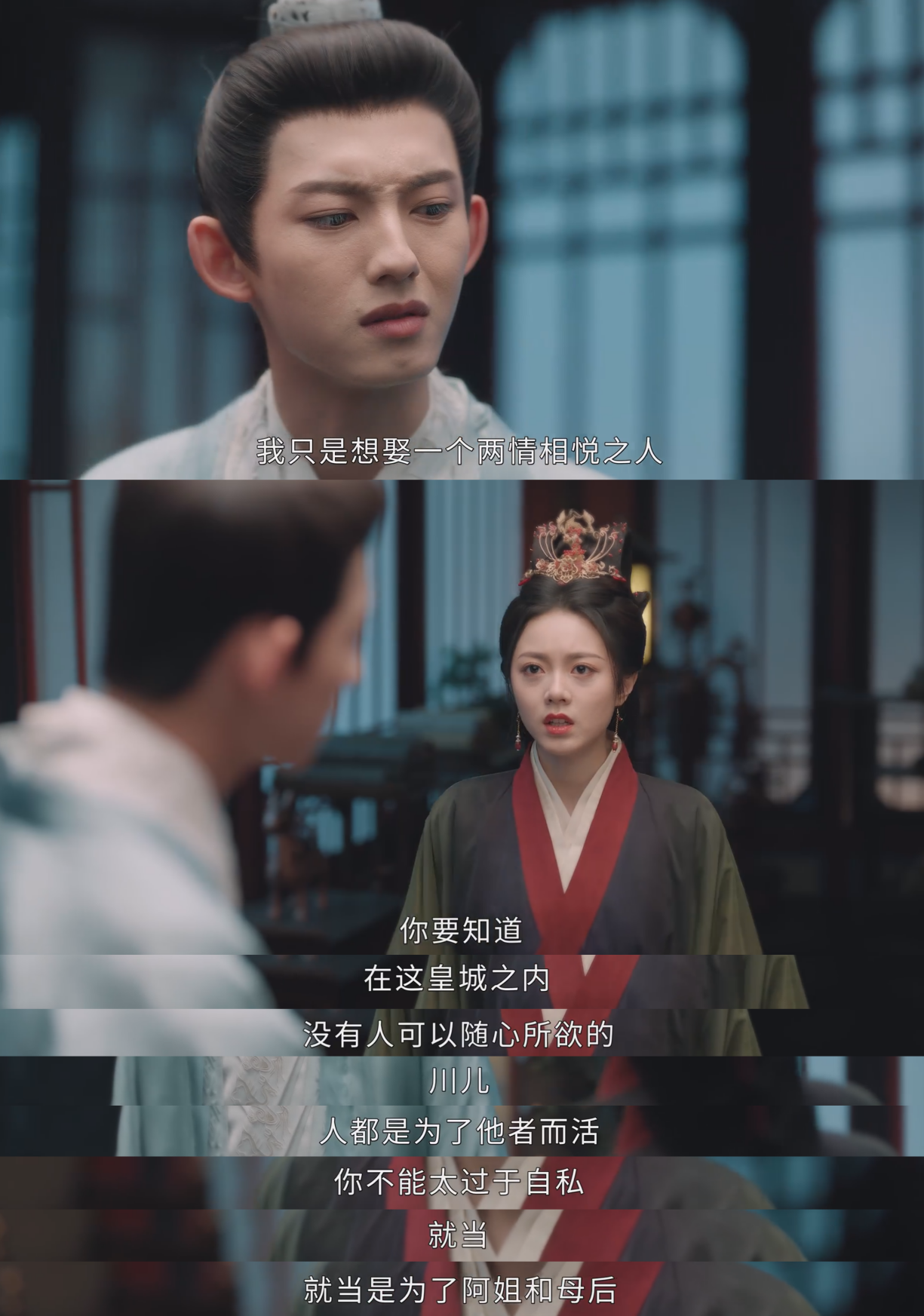
Li Rong once forced her brother to marry someone he didn't like
Sure enough, after becoming emperor, Li Chuan's temperament changed drastically after he lost his beloved concubine. He became irritable and perverse, and he was willing to sacrifice his sister for politics and power.
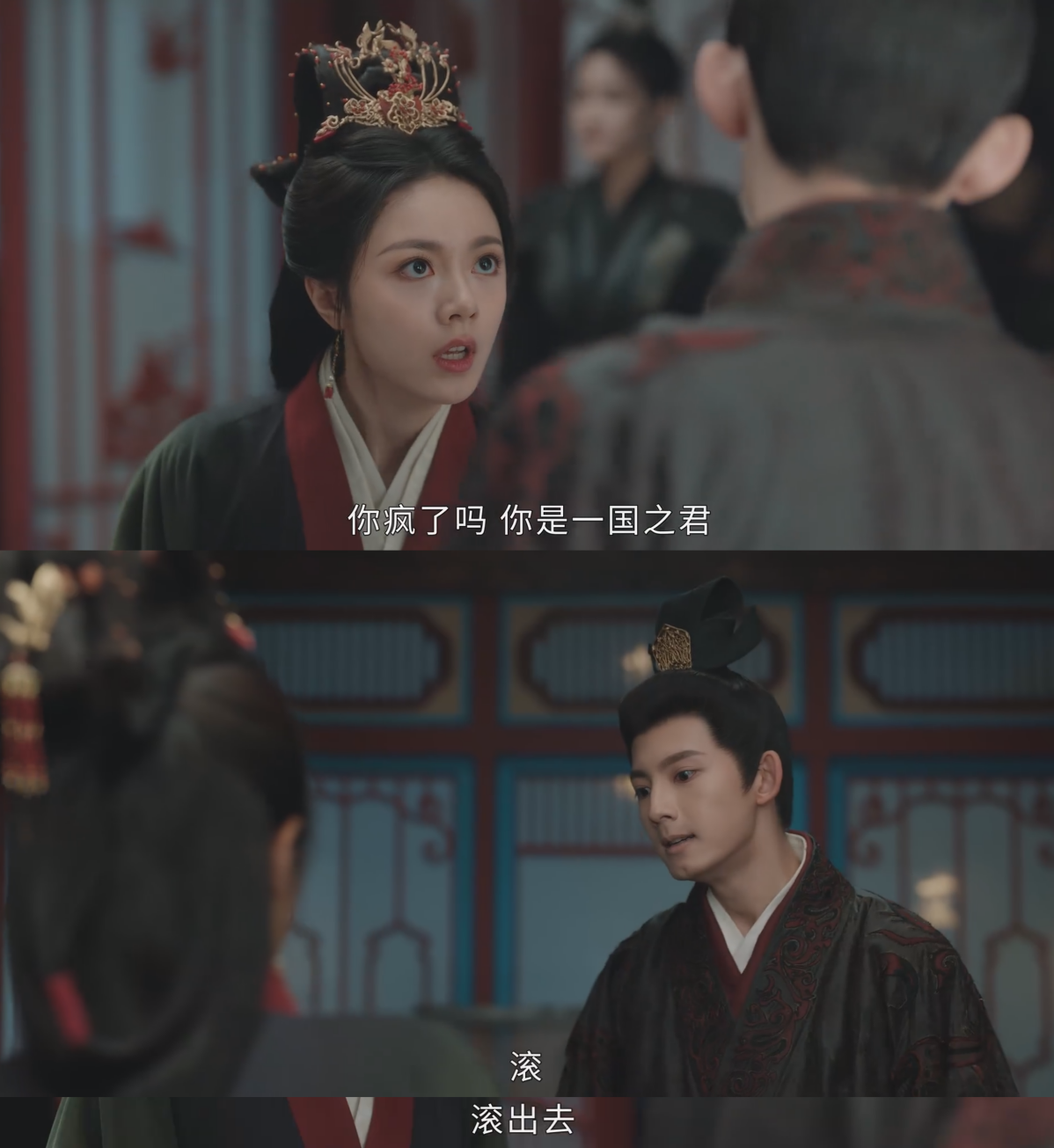
Li Chuan's temper became violent in his later years
The relationship between the siblings in the play can touch the hearts of ordinary audiences. In real life, many people have had similar experiences, that is, out of care and sense of responsibility, they try to plan a seemingly better path for their loved ones, while ignoring the other party's inner feelings and true wishes. However, even with good intentions, it is possible to hurt others unintentionally; the injured party, while suffering pain, may gradually become distorted and lose the original kindness.
After her rebirth, Li Rong finally had the opportunity to reflect: she had sacrificed her brother's happiness in the name of "for your own good". In this life, she did not want to repeat the same mistake. Ordinary audiences do not have such a chance to be reborn, so we should remember the warning in the play - do not deprive the happiness of the one you love in the name of love.
In general, the political plots in "Du Huanian" are quite childish, the love scenes are not internal, and the value expression through the rebirth setting has certain thoughts on life, with both advantages and disadvantages. If you ignore the political plots and can tolerate the childishness of the love scenes, "Du Huanian" is still acceptable for eating.
